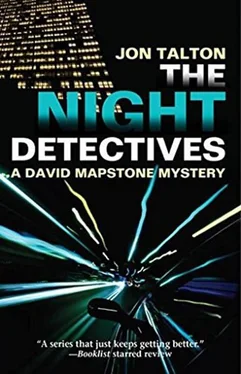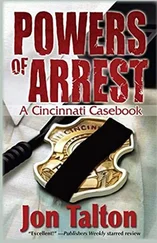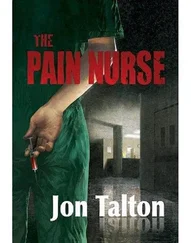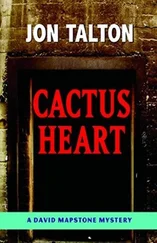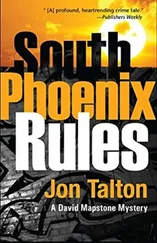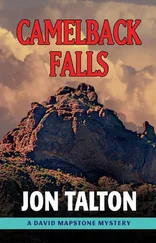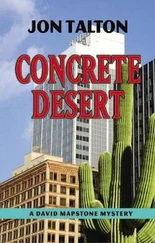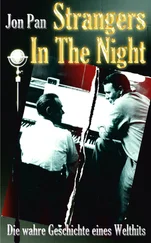The sun had burned off all the clouds and was now angled to throw the city into enchanting relief. The water was flawlessly blue and full of pleasure boats, which were dwarfed by the carrier at its mooring on North Island. The Navy kept the Nimitz-class carriers there because they wouldn’t fit under the bridge that connected San Diego to Coronado, even though it soared 1,880 feet, a blue arch, across the channel that led to the Pacific Fleet’s base.
I drove that bridge many times but was glad not to be going over it this trip. I was glad not to make connections between Grace Hunter and the suicide at the Spreckles Mansion. As I got older, I didn’t like heights, didn’t like bridges. I didn’t like being on this balcony with the restless wind, distorted and accelerated by the other skyscrapers, flapping against my shirt. San Diego didn’t really get earthquakes. A small fault line ran through Rose Canyon east of La Jolla, but otherwise it was pretty safe. That made me happy, nineteen stories over downtown.
At the edge, I looked down on the pool. A party was going on and the people looked very small. As I recalled, a body fell at thirty-two-feet-per-second, accelerating as it went down. It was a long damned time to contemplate death, to wonder if you’d made a big mistake.
What desolation must this young woman have felt to want to kill herself, sure that the terror of the fall and the pain of impact would be brief, and then nothing, comforting oblivion. If that was what really awaited us. Who really knew? I reached under my shirt and ran my finger along my totem, Robin’s cross.
“Hey, babe…” The video of Grace on the flash drive was vivid in my mind. The confident, teasing voice and smile. It fit perfectly with Tim’s description of a young woman who started her own business, however illicit, and was the consort of men who would pay thousands for her company. Would that same woman commit suicide?
I stared down at the concrete for a good five minutes.
The railing was at my belly button, but I was about ten inches taller than Grace Hunter. If I were suicidal and athletic, I was tall enough to hike one foot to the top of the railing and launch myself off. No fuss, no time for second thoughts. Grace couldn’t do that. Based on the description of a five-foot-four woman, her legs weren’t long enough. Handcuffed, she would have had to do a bit of a gymnastics move to go head first. Or maybe she hopped up on the railing backwards and pushed out into the sea-kissed air.
I was gripping the railing so hard my hands started to hurt. Making myself stop, I ran them along the smooth metal. The balcony was secluded, so nobody from an adjoining unit could see what was happening there. Other condos, offices, and hotels were too distant to give a detailed view, so witnesses were unlikely, especially after dark. I’m sure the cops had checked that out.
Such a lovely place to stand. How could you look out on this city and see anything but pleasure and hope? I knew better.
“Et in Arcadia ego…”
The Latin phrase came into my mind. “Even in Arcadia, I, death, hold sway.”
If she didn’t kill herself, who did? Not America’s Finest Pimp: he was searching for her, didn’t know she was dead. Zisman? It still couldn’t be ruled out. Alibis can fall apart with a little push. I wondered about this Edward that AFP had mentioned with dread. I wondered more why Grace, safe with Tim in Ocean Beach, with a new baby and seemingly much to live for, had gone to see Zisman.
“David, I see you like the view!” the agent chirped behind me. Her voice gave me a start. “Oh, I’m sorry!”
“David is a little jumpy,” Peralta said behind her. Two beats later, he asked, “Was this the condo where that girl fell from?”
She quickly herded us back into the living room. “Yes, it was a terrible thing. A suicide. Young people have such a hard time…”
After a few minutes more, she loaded us with marketing materials and we left, walking in silence. Peralta wanted to eat at the Grant Grill in the restored U.S. Grant Hotel, so we waited in the bar, me with a martini, him with a Budweiser, surrounded by tourists. Only three people came up to say hello to him and say how much they wished he were still sheriff. They meant well. It made me angry.
After two more martinis and a fabulous supper, I felt better. Peralta and I went back over what we knew as we ate. He wanted to visit Grace’s parents. I wanted to check out the list of regular clients. It had only taken me a day to go from not wanting to take this case to full buy-in. I had even landed another client. Was this Peralta’s usual ability to rope me in, or had I done it myself? Better to follow this case than to sit at home alone with only my thoughts, memories, and regrets. My mind was a bad neighborhood. I didn’t want to wander around there alone.
“If we visit her parents, maybe they’ll agree to become our clients,” he said, polishing off the king salmon. I wondered if he was joking. It sounded a bit like a used-car salesman on the make.
I told him about Tim Lewis hiring us and said we didn’t have to worry about having a real, live client. His expression was unreadable, but I didn’t think he was happy about my effort at business development. He was not worried about spending our dead client Felix’s money at this posh restaurant, however.
I used the silence to fold and refold my napkin. I reached in my pocket and slid out my iPhone, slid it back. Then: “So you don’t think it’s a suicide?”
“I want you to read the reports and give me your opinion, Mapstone. But, based on what you’ve told me, what she was into, and the cops didn’t know about it…” His voice trailed off, his meaning obvious. He ate and chewed, thinking.
He said, “I don’t know why SDPD wouldn’t have had Grace in its computer when her boyfriend filed the missing person’s report. Maybe a lag. Maybe a system glitch.”
“Maybe somebody paid off.”
He poked his fork at me. “Why do you keep checking your phone? If you want to call Lindsey, call her.”
“Like you called Sharon?”
He smiled slyly. A rare, actual smile.
But my phone-checking wasn’t about Lindsey, to the extent that anything I did wasn’t about Lindsey.
“It’s past nine now,” I said. “Grace’s boyfriend ought to be in Riverside. He ought to have been there hours ago, even with the worst traffic jam in California. I told him to call me, and I’ve heard nothing.”
He stared past me in thought.
“Maybe a careless kid. He’s there and safe.”
“At first he was afraid I was going to kill him,” I said. “I don’t think he would space this.”
I told him I wanted to go back to O.B. and check.
“Want me to go with you?”
I told him no. “ Sauve qui peut .” Every man for himself.
“Why are you speaking French, Mapstone?”
I smiled. “Memories.” To be a show-off, I added: “ Pourquoi pas ?” Why not?
“ Bonne chance ,” said the simple boy from the barrio.
With that, I walked out front where I gave the U.S. Grant Hotel doorman five bucks to hail me a cab.
The cab let me out in front of the apartment building at a quarter of ten. All the street parking was taken, probably all the way down to the business district, if not beyond. Your own parking space was a precious thing in O.B. I stood there as a black Dodge Ram truck slid by on Santa Cruz. The truck had a tag frame that read, “I (heart) Rancho Bernardo.”
I shook my head. “Good luck finding a parking spot this time of night, suburban boy.”
Then I was alone. When I lived here, O.B. had been dimly lit by yellow streetlights, a program the city had begun to cut the light pollution and protect the Palomar Observatory. Now the streetlights looked new and were definitely brighter, reflecting off the gray ceiling of the returning clouds. It was probably bad for the astronomers but good for me. I could see that the sidewalks were deserted, a good thing because I felt itchy with anxiety.
Читать дальше
